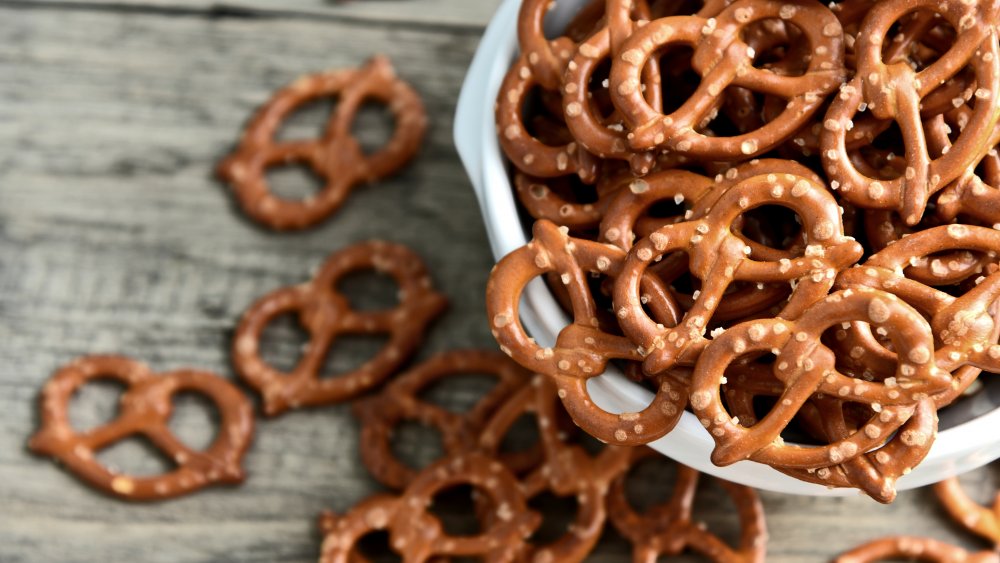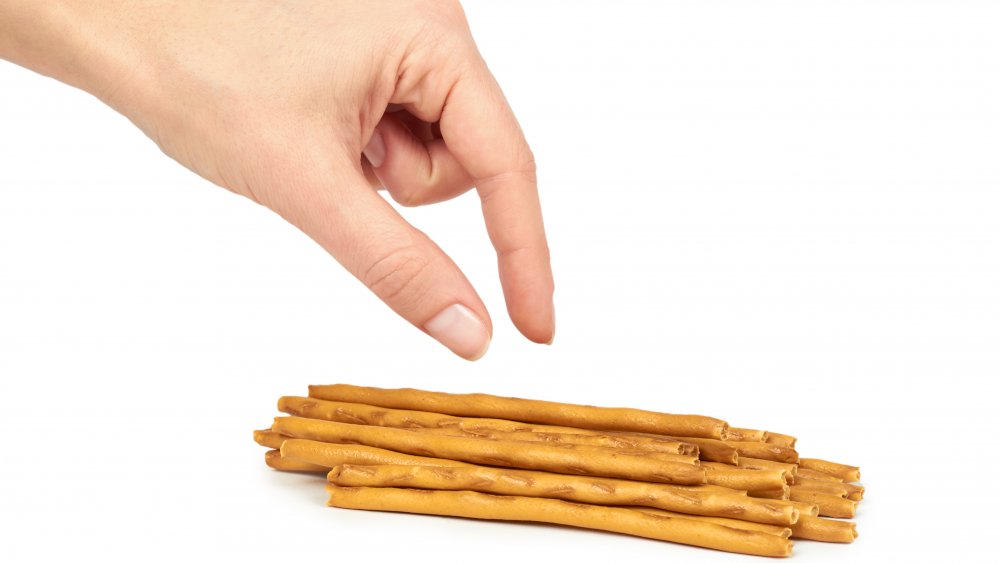Pretzels Aren't As Healthy As You Think. Here's Why
Hard pretzels are a go-to snack for many Americans. In 2020 this industry's brands generated over $1.33 billion. Crunchy pretzels were an invention of necessity. In the late 1800s a baker by the name of Julius Sturgis in Lititz, Pennsylvania found that his soft pretzels didn't have a long shelf life, often going stale. So, Sturgis developed a new recipe that resulted in a crispy pretzel. Today, 80 percent of hard pretzels are still made in Pennsylvania (via History).
But this salty snack food is not as healthy as you might think. A single ounce of hard pretzels contains about 109 calories, almost 23 grams of carbs, and 23.4 percent of the recommended daily intake of sodium (via Healthline). At first glance, that might all seem well and good, but so much has to do with portion size, and research has shown that we aren't very good at eyeballing an ounce. Translation: We overeat. In fact, in one study it was concluded we underestimate our food consumption by 10 percent.
Pretzels are high in salt and low in fiber
Did you know a single ounce of potato chips contain about 150 milligrams of sodium, but pretzels have over twice that, clocking in at 380 milligrams per ounce (via Richmond Times Dispatch)? As Healthline notes, excessive salt intake can result in high blood pressure, increasing your death by as much as 30 percent. Hard pretzels also contain a mere 1 gram of fiber. While a little is better than none, there are definitely healthier snacking alternatives with more fiber.
Additionally, most pretzels are made with white flour, and, as Healthline points out, have a high Glycemic Index (GI). GI measures how quickly your blood sugar rises as it digests a food. Pretzels have a GI of 80. This is considered to be a high GI and we care because consuming foods with on a regular basis with higher GIs has been linked to a higher potential of being diagnosed with type 2 diabetes.
So, what do you do if you like munching on these? The Daily Meal suggests trying whole-grain, low salt, or no salt versions.

